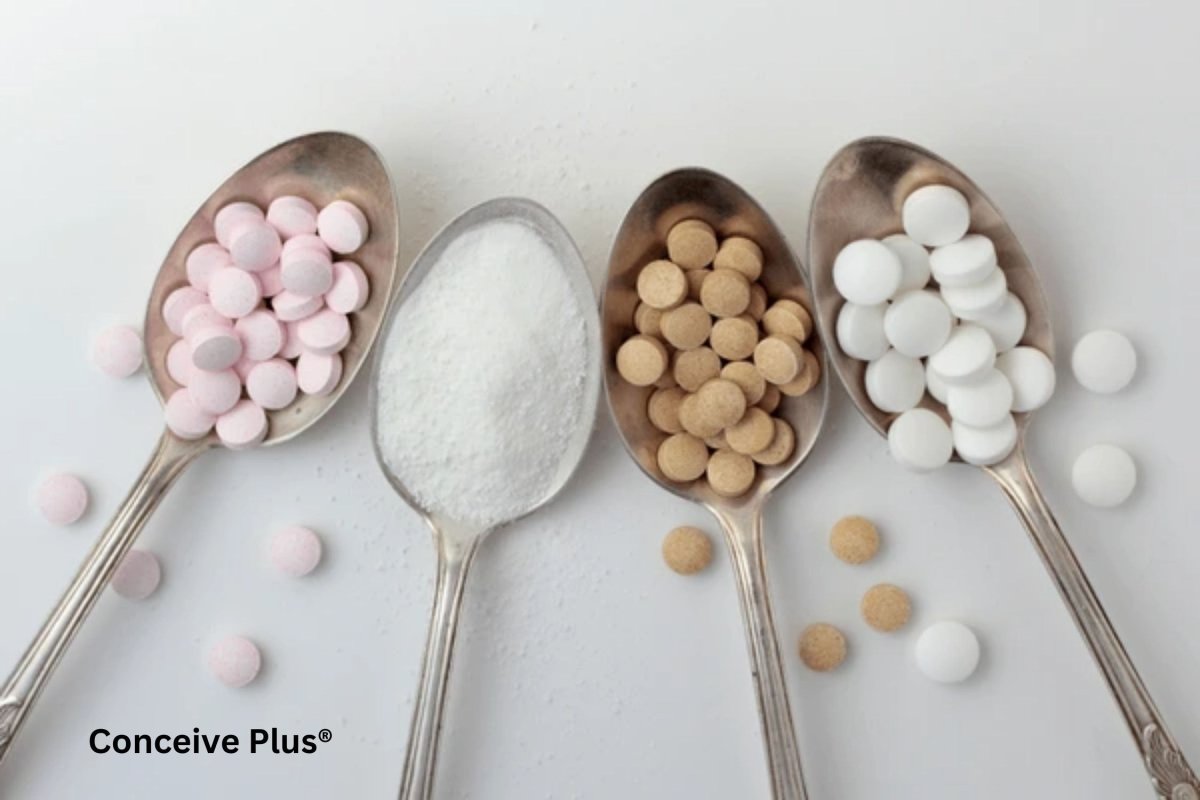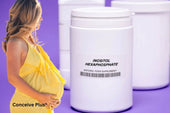Inositol Pills vs Powder: Finding the Form That Fits You Best

Choosing between inositol pills vs powder can be confusing if you're not sure how each form works for different lifestyles and health goals. Inositol, particularly myo inositol 4000 mg, is widely used for promoting hormonal balance, metabolic health, and neurological function. But does it matter whether you take it in capsule or powder form? Understanding the differences can help you make a decision that works best for your body and routine.
Understanding What Inositol Does
Inositol is a type of sugar alcohol with functions similar to B vitamins. It's naturally present in foods like fruits, beans, and grains, but supplementation is often recommended when higher doses are needed. One of the most commonly studied doses is inositol 4000mg, which is often linked to improvements in insulin sensitivity and ovulatory function. Both powder and pill forms can deliver this dosage, but how you reach that number can vary [1].
Customizing Your Dosage
Powdered inositol offers the advantage of flexible dosing. If your goal is to reach the full myo inositol 4000 mg daily, powder may make it easier to fine-tune your intake. A measuring scoop often allows users to increase or decrease their dosage gradually, based on how their body responds. Pills, on the other hand, are pre-dosed—often around 500 to 1000 mg per capsule—which means you may need to swallow multiple capsules to hit your target. For people who find large capsules hard to take or want exact control over their intake, powder tends to win here [2].
For more detailed guidance on science‑backed benefits and optimal dosage, consider reading our in-depth article on inositol supplement powder for additional tips on safe usage.
Convenience and Portability
When it comes to convenience, pills have a clear advantage. They're easy to carry, quick to take, and mess-free. If you're someone with a busy schedule or travel often, taking a few capsules in the morning might be more realistic than mixing powder into a drink. Powder, while just as effective, usually requires preparation—measuring the dose and stirring it into water or another beverage. This extra step might be a dealbreaker for those who value simplicity.
Taste and Texture
While inositol powder is generally tasteless, some people still find the texture slightly chalky or odd when mixed with plain water. If you’re sensitive to mouthfeel, this might influence your preference. Capsules eliminate this issue altogether—they go down quickly and leave no aftertaste. That said, others prefer the powder precisely because it avoids swallowing large pills, especially if you need several to reach a therapeutic dose.
Cost and Value
If you’re planning to take inositol long-term, cost might be a major factor. Gram for gram, powder tends to be more affordable. High-dose regimens like inositol 4000mg can get pricey if you're relying on capsules. Bulk powder supplements usually offer a lower price per serving, which adds up over time. Pills come at a premium for their convenience, but for some, the ease is worth the added cost [3].
Bioavailability and Absorption
Both forms are well-absorbed by the body, so you’re not losing effectiveness by choosing one over the other. However, some people find that powder dissolves faster and may kick in more quickly, especially when taken on an empty stomach. Pills must dissolve in the digestive tract before they’re absorbed, but for most users, the difference is negligible in day-to-day effects.
Lifestyle Fit and Personal Preference
The “better” form of inositol often comes down to your lifestyle. Are you consistent with your supplement routine? Do you mind measuring powder, or do you prefer something grab-and-go? People who already mix smoothies or take multiple supplements may find powder easy to incorporate. Those who prefer simplicity often lean toward pills, especially if they dislike the idea of preparing something to drink daily [4].
If you're curious about how supplement form can enhance your overall nutrition, consider checking out our article on "Benefits of Prenatal Vitamin Powder and Prenatal Powder" for valuable insights and usage tips.
The Bottom Line
Making the choice between inositol pills vs powder depends on your priorities—whether it’s flexibility, convenience, cost, or ease of use. Both forms can help you meet your health goals, especially when aiming for clinically-researched doses like myo inositol 4000 mg. Powder may offer more control and value, while pills are the go-to for portability and simplicity. Whichever you choose, consistency is key—and that starts with picking the form you’ll actually stick with.
References
- López-Gambero AJ, Sanjuan C, Serrano-Castro PJ, Suárez J, Rodríguez de Fonseca F. The Biomedical Uses of Inositols: A Nutraceutical Approach to Metabolic Dysfunction in Aging and Neurodegenerative Diseases. Biomedicines. 2020 Aug 20;8(9):295. doi: 10.3390/biomedicines8090295. PMID: 32825356; PMCID: PMC7554709.
- Zarezadeh M, Dehghani A, Faghfouri AH, Radkhah N, Naemi Kermanshahi M, Hamedi Kalajahi F, Mohammadzadeh Honarvar N, Ghoreishi Z, Ostadrahimi A, Ebrahimi Mamaghani M. Inositol supplementation and body mass index: A systematic review and meta-analysis of randomized clinical trials. Obes Sci Pract. 2021 Oct 22;8(3):387-397. doi: 10.1002/osp4.569. PMID: 35664247; PMCID: PMC9159559.
- Nordio M, Bezerra Espinola MS, Bilotta G, Capoccia E, Montanino Oliva M. Long-Lasting Therapies with High Doses of D-chiro-inositol: The Downside. J Clin Med. 2023 Jan 3;12(1):390. doi: 10.3390/jcm12010390. PMID: 36615188; PMCID: PMC9821166.
- Nhung Thuy DANG, Rie MUKAI, Ken-ichi YOSHIDA, Hitoshi ASHIDA, d-Pinitol and myo-Inositol Stimulate Translocation of Glucose Transporter 4 in Skeletal Muscle of C57BL/6 Mice, Bioscience, Biotechnology, and Biochemistry, Volume 74, Issue 5, 23 May 2010, Pages 1062–1067, https://doi.org/10.1271/bbb.90963

























